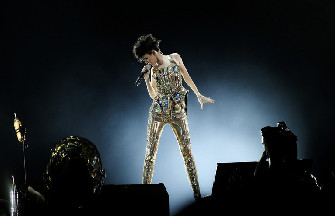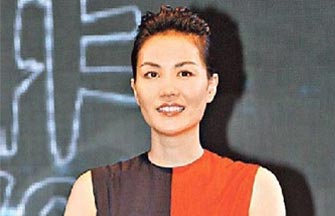To bing or not to bing
Updated: 2014-07-25 07:34
By Belle Taylor (China Daily)
|
||||||||
A few weeks after arriving in China I received an e-mail from the human resources department of my Chinese employer that had been sent to all the foreign staff. The e-mail informed us how to look after ourselves in summer, including a stern warning not to eat cold foods.
Why were cold foods verboten? My first guess was that the food could spoil in the heat, but that wasn't it. According to traditional Chinese medical beliefs, cold food should be avoided in summer in case one catches a "summer disease", which sounds to me a bit like a cocktail you might drink at a pool party.
Not long after receiving that mail, my language teacher asked me what temperature beer should be drunk in winter. "Bing?" I ventured, meaning ice. It was a new word in my vocabulary. She smiled and nodded. "And in summer you would drink...?" "Bing!" I replied, feeling pretty pleased with myself. I was really getting the hang of this bing business.
She shook her head. "No, bing means ice. In summer you drink room temperature beer."
"Um, no, beer is always drunk cold," I said. "Trust me, I'm Australian."
She was mortified.
"You mean, you drink cold drinks in summer?"
"Well, yes."
She mimicked the action of drinking, just in case something had been lost in translation. I nodded. She hadn't looked so shocked since I told her I ate cheese.
The idea of food being linked to well-being is hardly unique to China - in fact Hippocrates, the father of Western medicine, is famous for his quote: "Let food be thy medicine, let medicine by thy food."
But in the West we play pretty fast and loose with the rules of what is and isn't good for you. It seems each week there is a new study extolling the virtues of tomatoes or claiming animal fats are bad for you. The next week another expert will swear you should stay away from tomatoes and eat more pork belly. The best thing to do is to pay attention to the ones you agree with and disregard the ones you don't, eventually developing a strict diet of dark chocolate and red wine.
In China, however, there is a range of set beliefs about food and how what you eat impacts your health. There is even a saying - a good doctor should first be a good chef.
Chinese friends refer to these rules for food as if they are common knowledge, citing them as if they are as logical as saying walking in front of speeding buses is bad for your health. "I've been a bit unwell because I drank cold water," a friend once told me. "It's bad for me."
"It's not bad for you," I countered. "Smoking, drinking and operating heavy machinery with your eyes closed is bad for you, cold water is fine." She dismissed me with a wave of her hand. "It's different for me because I am Chinese," she said with authority. "Cold water upsets my stomach."
Can't argue with logic like that.
To an outsider, these rules can seem a little strange, and while most of the reasons for eating certain foods is fairly sound, others can seem bewildering if they are not the homespun philosophies you are used to.
So, a confession: I ignored the well-meaning human resources mail, continuing to eat cold food with abandon throughout summer, tempting fate and the dreaded summer diseases. So far, so good. Now I might just drink a bing beer - I know, I know, it's bad for my health, but trust me, it's just the medicine to beat the summer heat.
belletaylor@chinadaily.com.cn
(China Daily 07/25/2014 page20)

 Star Stefanie Sun holds concert in Beijing
Star Stefanie Sun holds concert in Beijing
 Faye Wong's manager refutes star's drug rumors
Faye Wong's manager refutes star's drug rumors
 Lu Yi and daughter Bei Er pose for street snaps
Lu Yi and daughter Bei Er pose for street snaps
 Photoshoots of actress Li Xiaomeng
Photoshoots of actress Li Xiaomeng
 Council of Fashion Designers of America Awards
Council of Fashion Designers of America Awards
 Fan Bingbing, first Chinese actress in Barbie Hall of Fame
Fan Bingbing, first Chinese actress in Barbie Hall of Fame
 Awarding ceremony of 2014 hito Pop Music held in Taipei
Awarding ceremony of 2014 hito Pop Music held in Taipei
 Zhao Liying's photo shoot for Children's Day
Zhao Liying's photo shoot for Children's Day
Most Viewed
Editor's Picks

|

|

|

|

|

|
Today's Top News
Ex-security chief Zhou Yongkang under probe
Prudence urged over solar dispute
US visa delays likely to continue
McDonald's fishing for supplier
OSI group to fund food safety
China's FDI in US set for increase
Glitch delays visas for US-bound students
A musical spoof of the Clinton years
US Weekly

|

|





